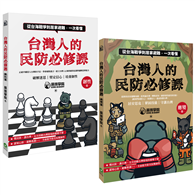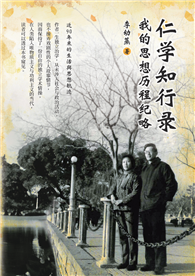This book presents a complete human-centered design process (ISO 9241:210) that had two goals: to design universal, intuitive, and permanent pictograms and to develop a process for designing suitable pictograms. The book analyzes characteristics of visual representations, grounded in semiotics. It develops requirements for pictogram contents, relying on embodied cognition, and it derives content candidates in empirical studies on four continents. The book suggests that visual perception is universal, intuitive, and permanent. Consequently, it derives guidelines for content design from visual perception. Subsequently, pictogram prototypes are produced in a research through design process, using the guidelines and the content candidates. Evaluation studies suggest that the prototypes are a success. They are more suitable than established pictograms and they should be considered universal, intuitive, and permanent. In conclusion, a technical design process is proposed.
| FindBook |
有 1 項符合
Universal, Intuitive, and Permanent Pictograms: A Human-Centered Design Process Grounded in Embodied Cognition, Semiotics, and Visual Perception的圖書 |
 |
Universal, Intuitive, and Permanent Pictograms: A Human-Centered Design Process Grounded in Embodied Cognition, Semiotics, and Visual Perception 作者:Bühler 出版社:Springer 出版日期:2022-09-29 語言:英文 規格:平裝 / 332頁 / 普通級/ 初版 |
| 圖書選購 |
| 型式 | 價格 | 供應商 | 所屬目錄 | $ 10199 |
建築設計, 製圖與模型 |
|---|
| 圖書館借閱 |
| 國家圖書館 | 全國圖書書目資訊網 | 國立公共資訊圖書館 | 電子書服務平台 | MetaCat 跨館整合查詢 |
| 臺北市立圖書館 | 新北市立圖書館 | 基隆市公共圖書館 | 桃園市立圖書館 | 新竹縣公共圖書館 |
| 苗栗縣立圖書館 | 臺中市立圖書館 | 彰化縣公共圖書館 | 南投縣文化局 | 雲林縣公共圖書館 |
| 嘉義縣圖書館 | 臺南市立圖書館 | 高雄市立圖書館 | 屏東縣公共圖書館 | 宜蘭縣公共圖書館 |
| 花蓮縣文化局 | 臺東縣文化處 |
|
|
圖書介紹 - 資料來源:博客來 評分:
圖書名稱:Universal, Intuitive, and Permanent Pictograms: A Human-Centered Design Process Grounded in Embodied Cognition, Semiotics, and Visual Perception
內容簡介
作者簡介
Dr. Daniel Bühler is a researcher in the Department of Applied Media Studies at Brandenburg University of Technology. He is interested in multimodal human-computer interaction, data-driven design, audiovisual perception and cognition, and semiotics. He holds master’s degrees in three fields (MA, MEd, MFA). In his PhD, he brought these fields together conducting a complete human-centered design process, grounded in scientific theory, empirical research, and research through practice. Through universal, intuitive, and permanent designs, Daniel tries to improve interaction between people worldwide.
|











